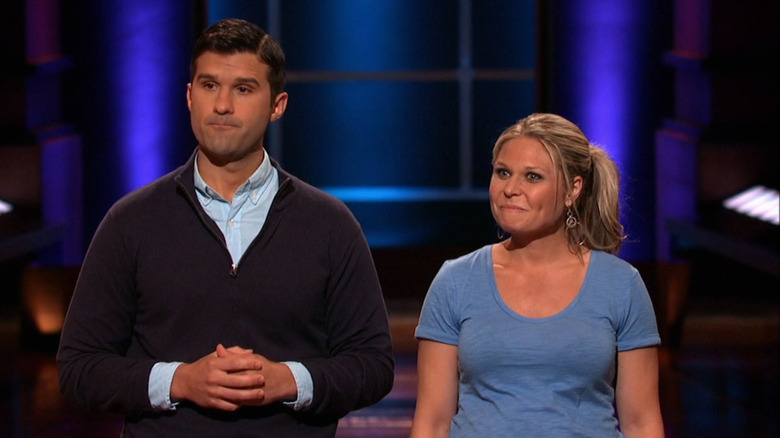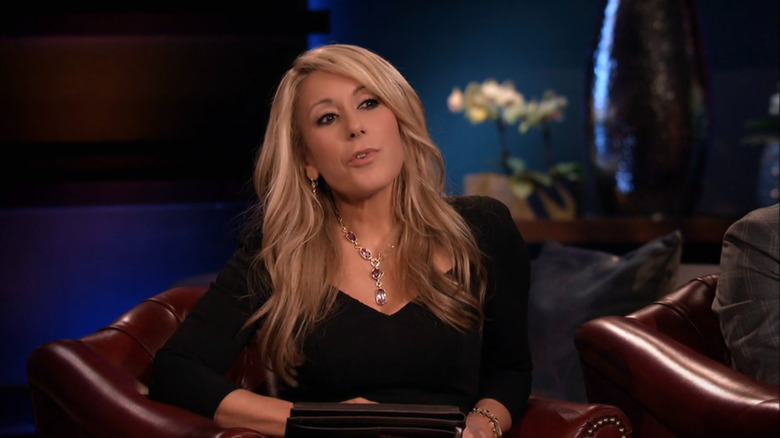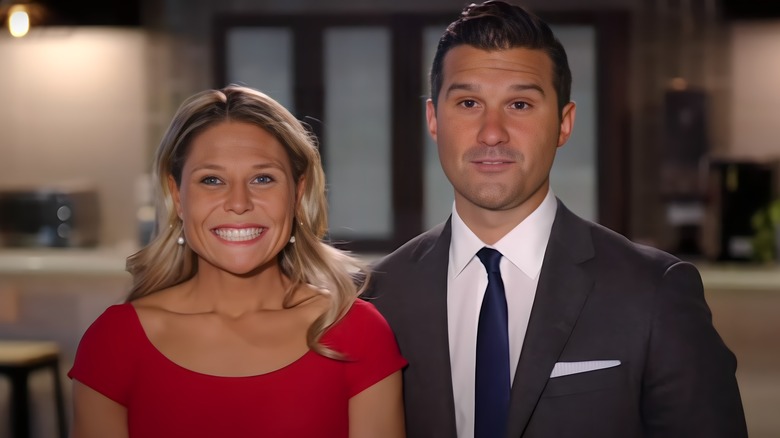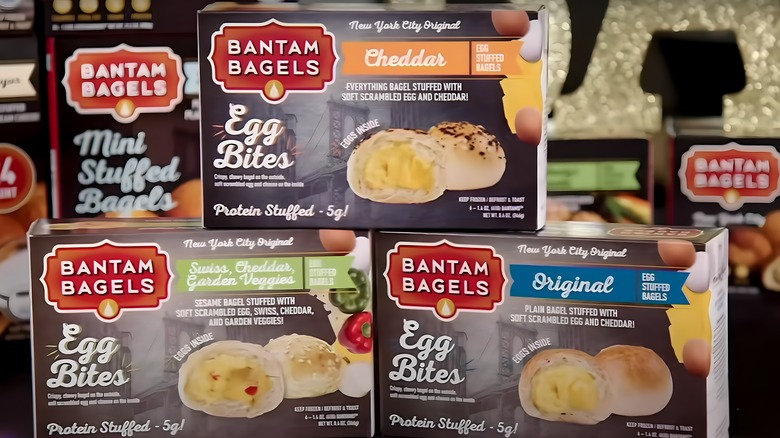Shark Tank: Whatever Happened To Bantam Bagels?
Many people dream of bagels, but few of us are able to translate those dreams into multi-million-dollar carbohydrate empires. Enter Nick and Elyse Oleksak, two New Yorkers who discovered a hole in the bagel market, used it to inspire their company, Bantam Bagels, and walked away from their "Shark Tank" appearance with Lori Greiner's support and some serious bread in their pockets.
Nick and Elyse were both employed on Wall Street when Nick jolted awake one night with a pitch for his wife: A bite-size bagel with cream cheese already stuffed inside. The couple began experimenting with recipes in their Brooklyn kitchen, and by 2013, the duo opened a bagel shop in the West Village.
With a mission statement that promised to "change the way you bagel," Bantam Bagels enjoyed a rapid rise to mainstream success: In 2013, the product made its TV debut on the "Today Show" and QVC, and in 2014, Oprah Winfrey included the business on her list of Favorite Things.
Steve Harvey and Oprah may have counted themselves as Bantam Bagels fans, but the Oleksaks were determined to land a bigger fish through an appearance on "Shark Tank." In an interview with Her Campus, Elyse shared that the couple were already big fans before going on the show and that they studied for their pitch more diligently than they did their SATs. She said, "We went in there so ready — we even had signals of how to respond, like different nods for what we'd accept."
Lori Greiner goes all in on Bantam Bagels
Elyse Oleksak admitted that it took hundreds of applications for her and her husband to land a chance to pitch on the show, and when they got their shot in 2015, they didn't waste it. The Oleksaks ask for $275,000 in exchange for an 11% stake in the company, and initially, it looks like they might get turned down. Robert Herjavec is not impressed by their Wall Street background and feels that their financial situation might translate into a lack of entrepreneurial desperation. Mark Cuban is put off by the business' lack of strategy, and while he feels like the product has potential, he's not willing to undertake the expensive journey of helping the couple discover their market.
Barbara Corcoran and Kevin O'Leary are both interested in getting into business with Bantam Bagels — but at a high cost. Corcoran offers $275,000 in exchange for 51% of the business, arguing that the couple won't succeed without her. O'Leary suggests $275,000 for 50% of the business, but his potential deal comes with a few caveats: The Oleksaks have to quit their jobs, they have to use a commercial kitchen, and they have to sell directly to consumers.
Bantam Bagels' saving grace comes in the form of Greiner. She offers $275,000 for a 30% stake in the company but agrees to Elyse's counteroffer of 25%.
Bantam Bagels goes big-time
"Shark Tank" launched Bantam Bagels into the mainstream — but the company almost changed its name in the process. Lori Greiner believed in the business enough to invest $275,000, but she wasn't loving the branding and requested that the Oleksaks change the name to Bagel Stuffins. This is one time when Greiner's shark-like instincts were off: The name underperformed during market tests and the company continued to go by Bantam Bagels. When it came to the product's potential, however, Greiner's investment instincts were spot-on. Less than a minute into the Oleksaks' pitch, the company's website crashed due to an influx of visitors; by the end of their segment, the company sold over 100,000 bagels — another example of the "Shark Tank" Effect in play.
Before "Shark Tank," Bantam Bagels did $200,000 in sales in four months. Four years after appearing on the show, the company reached $45 million dollars in sales, launched three product lines, scored a partnership with Starbucks, and inked a multi-million dollar buyout. In October 2018, the T. Marzetti Company purchased Bantam Bagels for $34 million, with the Oleksaks agreeing to stay on in creative roles.
Bantam Bagels bites the dust
In 2018, Bantam Bagels seemed ready to take on the world. By 2022, the business shuttered. Sadly, it appears the COVID-19 pandemic is to blame. Less than four years after signing a deal to acquire Bantam Bagels, Lancaster Colony — which owns T. Marzetti Company — divested itself from the business, claiming Bantam Bagels underperformed with no chance of profitability on the horizon. As quoted by JustFood, Lancaster Colony CEO Dave Ciesinski said in a 2022 post-results call that the pandemic was harsh for the food service industry. "[D]uring this period, Bantam Bagels was discontinued [as T. Marzetti's] largest customer for precisely this reason," he said. "This discontinuation and the sustained impact of the pandemic changed the economics of the business."
Lancaster announced plans to sell the equipment used to manufacture the bagels and stated its intention to sever ties by the end of June 2022. Bantam Bagels' last Instagram post went up in April 2022, and the company last posted on Twitter in May 2021. The website and store are currently unavailable and the product is no longer available for purchase on Instacart or UberEats.
Neither Nick nor Elyse Oleksak appears to have moved on to other projects. Both still have their roles as Bantam Bagel owners listed on LinkedIn and neither has publicly accepted another job. The former founders are not active on social media, but after scoring that multi-million dollar buyout, it's likely they're enjoying the rewards of their hard work.



